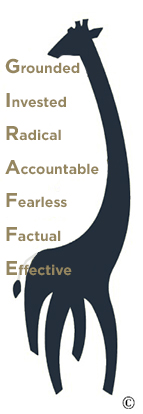The Situation
I have a neurodivergent client who is on the autism spectrum. They are very engaged in coaching and say they love it, but I feel like I just can’t tap into a real emotional connection to their topics. How should I approach this?
As coaches become more aware of avoiding ableism and understanding neurodivergent clients, a definitive set of skills is necessary to tap into the brilliance of someone with autism, into their unique needs, strengths, and challenges.
Communication is crucial and must be customized to your client’s preferences. What conversations are you having with your clients about their preferred way of communication? That may help you tap into your client’s deeper emotional feelings.
You must have the flexibility to recognize that a neurodiverse person may have different processing speeds and may need more time to process information or make decisions. Are you collaboratively setting achievable and realistic goals? Break down larger goals into smaller manageable steps and celebrate success with sincerity.
I am getting into the weeds rather quickly in my answer and wish to acknowledge that each neurodiverse person is unique. There is not one straight-on answer to this sticky situation. In my research to answer your question, I referred to the book, The Autistic Brain: Thinking Across the Spectrum by Temple Grandin and Richard Panek. In it, Grandin not only discusses her own first-hand experience with autism but also provides background and scientific research into the subject.
What is most appealing about this book is the light Grandin shines on neurodiverse people. It gives the reader a robust understanding of the condition. This understanding is critical to mentoring neurodiverse individuals. Grandin successfully argues that the strengths of people who are autistic require flexibility, empathy, and will require a willingness to adapt your coaching approach.
Neurodiversity coaching is a niche practice in which training is available. I also recommend further research and reading to become more educated and aware of the subtle differences that make us unique. As with all clients, treat them with gentleness and respect through coaching.
Besides saying that they love coaching, what other feedback are you receiving? If you provide a survey for your client to complete, you may get written responses that elevate your understanding of their insights. Also, reach out to the coaching community and get first-hand accounts of neurodiverse coaching examples.
Use caution and remember that all neuro-diverse clients are unique. Avoid labels and stereotypes, and bring your best to your coaching client. Best of luck helping your client’s brilliance shine – and yours as well!
Tags: Business, client, Communication, neurodivergent, sticky situation






